Memorie.al / On June 28, 1948, the Communist Party of Yugoslavia broke away from the Cominform, which was controlled by Moscow. This split was declared to be a move by Belgrade for the creation of its own socialism. Uncovered documents prove that first and foremost, it was a clash for political power, which was ignited by Albania. Marshal Josip Broz Tito, the undisputed communist leader, was filled with self-confidence after the victory over Nazi Germany. Stalin’s Red Army marched simultaneously with Tito’s partisans in the spring of 1945 in Belgrade, while the rest of the country had been liberated by Tito’s own partisans with their own forces. Tito then strengthened his position domestically through the violence he used against the opposition.
Regarding his neighbors, he certainly had territorial claims. When Tito raised claims to the Italian city of Trieste at the end of the war, a confrontation with the Western Allied forces was avoided, thanks to a compromise proposal from Moscow.
TIRANA BETWEEN MOSCOW AND BELGRADE
Despite the high political tones in the Western Balkans, Moscow was giving way to Tito. However, when relations between the East and the West began to worsen in mid-1947, Moscow changed its policy and began to consolidate its sphere of influence in Eastern Europe. These efforts intersected with Belgrade’s expansion plans.
Tito aspired to unification with Albania, supported the communist fighters in neighboring Greece, and wanted to claim all the Slavic-inhabited areas in the Bulgarian and Greek territories of Macedonia. The developments in the Balkans clashed with Stalin’s tendencies for hegemony and increased the chances of a bloody conflict with the West, which in the civil war in Greece, were positioned on the side of the government forces.
Belgrade viewed Albania as Yugoslav territory. The inclusion of Albania in Yugoslavia would strengthen the latter’s position in the Balkans. Tito saw the Yugoslav-Albanian Union as a means to neutralize the problem of Kosovo and floated the possibility of uniting this Albanian-inhabited territory with Albania.
Moscow initially did not take Albania into account at all. When the head of the Albanian government, Enver Hoxha, was invited to visit Moscow in May 1947, the Kremlin first sought approval from Belgrade.
But then the Soviet Union began to expand its ties with Albania, which was viewed negatively in Belgrade. To counter Soviet influence, Belgrade launched an attack against all those Albanian leaders who were known for their strong pro-Russian orientation.
A DEATH AND ITS CONSEQUENCES
The Albanian Political Bureau was not unique in its foreign policy course. While Albania’s Minister of Internal Affairs, Koçi Xoxe, was in favor of a rapprochement with Yugoslavia, Nako Spiru, who held the post of Minister of Economy and Industry, was an exponent of the Soviet line.
Enver Hoxha played with both positions, but followed a clear pro-Yugoslav policy until the Yugoslav-Soviet split in 1948. The tension in the Political Bureau deepened in November 1947, when Belgrade accused Tirana of pursuing a hostile course towards Yugoslavia.
Under the influence of Koçi Xoxe, Hoxha agreed to launch an investigation against Nako Spiru. Such a thing happened shortly after the message from Yugoslavia. Few could have thought at this time that the death of Spiru, who had intensive personal contacts with the Soviet embassy in Tirana, would be the starting point of the conflict between Moscow and Belgrade.
The events in Albania caused Stalin himself to personally engage with the issue. At the end of December 1947, he asked Tito via a telegram to send to Moscow “a responsible comrade, for example Djilas or someone else who is familiar with the situation in Albania.”
In mid-January 1948, Milovan Djilas, a member of the Yugoslav Political Bureau and one of Tito’s close confidants, went to Moscow, and on the very same evening, he held talks with Stalin and Soviet Foreign Minister Molotov.
Stalin immediately brought up Spiru’s death in the conversation and let Djilas understand his concern regarding the developments in the Balkans. The Russian dictator then also spoke about the unification of Yugoslavia with Albania and, in his ambivalent manner, tried to emphasize that both states should wait until the right moment came for such a thing.
Why Stalin wanted the parties to wait for the unification is not made clear in the Soviet documents. What was decisive for the subsequent developments was that Djilas, in his notification from Moscow, expressed himself positively about the results of the talks with Stalin. Tito felt somewhat approved in his policy towards Albania.
On the same day he received Djilas’s telegram, he expressed his desire to Hoxha that Yugoslav troops be stationed at a military base in the southern city of Korçë. As an argument for this, Tito gave the threats that might come to Albania from the Greek monarcho-fascists.
Although the contacts between Belgrade and Tirana were developing secretly, the Kremlin did not remain uninformed. A day after Hoxha gave his understanding to Tito for the stationing of Yugoslav troops, a message arrived in Moscow from the Soviet ambassador in Belgrade, Anatoli Lavrentyev, informing about the Yugoslav plans.
THE FINAL MEETING IN THE KREMLIN
The Kremlin leadership was alarmed. Molotov condemned Belgrade’s positions with a harsh telegram, mentioning the march Tito was allegedly planning to carry out in Albania. Immediately after this, an urgent meeting in Moscow was suggested to the Yugoslav leadership.
Belgrade accepted instantly and sent a high-ranking delegation, led by Edvard Kardelj, a member of the Yugoslav Political Bureau and the second man after Tito.
A Bulgarian delegation was also invited to this decisive meeting, which was held on February 10, 1948, in the Kremlin. The reason was the statements of Georgi Dimitrov, chairman of the Bulgarian Communist Party, who had publicly expressed himself in favor of the unification of the countries of the ‘People’s Democracies’ of Eastern Europe into a federation.
Dimitrov’s statements, which had not been made in consultation with Moscow, had a great echo in the West because the Bulgarian communist leader had explicitly included Greece in the project.
Molotov read the accusations against them. Point by point, he attacked what were called “mistakes of the comrades in the Balkans” and made it clear that in the future, all foreign policy decisions had to receive the approval of the Kremlin.
To the surprise of all the guests, Stalin expressed himself negatively about the civil war in Greece, emphasizing that things in Greece had little chance of success and that this could bring international complications. He signaled to the Yugoslavs and Bulgarians to reduce their military aid to the Greek communists.
BELGRADE’S DEFIANCE
The Yugoslav and Bulgarian participants were disciplined during the meeting and accepted their “mistakes.” While Bulgaria remained silent afterward, Tito continued his policy in the Balkans. Just a few days after the Moscow meeting, Tito held a meeting with a high-level representation of Greek partisans and assured them of Yugoslavia’s continued support.
This commitment by Tito reached a point where the situation on the Yugoslav-Greek border became dangerous. Thus, Ambassador Lavrentyev learned during a conversation with the Yugoslav Foreign Minister that Belgrade had put the entire air fleet on a state of war due to expected provocations from the Greek monarcho-fascists.
Yugoslavia had no intention of abandoning its ambitions for Albania. However, Tito, not wanting to provoke the situation further with the Soviet Union, gave up the initiative to send Yugoslav military units to Albania-when suddenly Tirana made its moves, seeing this development.
In early March 1948, the Eighth Plenum of the Communist Party of Albania approved a resolution declaring Albania’s orientation toward Yugoslavia as the official party line. Attached, the delegates approved a secret document that detailed the unification of the Albanian army with the Yugoslav one.
PRECEDENT FOR PURGE OPERATIONS
The Kremlin was accurately informed about the steps Yugoslavia would take by a secret contact within the high levels of the Yugoslav Political Bureau. When it became clear to Stalin that Tito would stand firm on his foreign policy course, he launched the offensive.
On March 18, 1948, Moscow withdrew its military advisors and employees from Yugoslavia. Following this, the leadership of Belgrade received a series of letters in which Stalin and Molotov condemned the actions of the Yugoslav Communist Party.
These letters also reached the doors of the leaders of other communist parties in Eastern Europe to mobilize them against Yugoslavia and for the decision to be made within the framework of the Cominform, a connection of Eastern European communist parties controlled by the Soviet Union.
In 1956, Nikita Khrushchev (Chruschtschev) quoted Stalin in his famous speech at the 20th Party Congress with the words: “I will just move my little finger, and there will be no more Tito.”
Archival documents show that Stalin at that time did not want to finish with the case of Tito. In fact, the Kremlin chief was satisfied with the isolation of Yugoslavia in the communist camp.
The open attack on the head of the party in Belgrade was also a means to strengthen the Socialist Camp and simultaneously a precedent for a cleaning action (purge) that Moscow undertook in the following years in the parties of Eastern Europe.
The isolation of Yugoslavia also went against Soviet interests in the Balkans. Albania turned to Russia, thus finding a new patron; Bulgaria became one of the harshest critics of the “Tito clique,” and eventually, Belgrade gave up aid to the Greek partisans, which led to their defeat and the end of the war.
Tito was not discouraged by this harsh reaction from Moscow. The Yugoslav leader quickly realized that he could use this situation to his advantage. Tito began to sell this conflict as a result of the struggle for a “new road to socialism” – a slogan that later became the main reason for the successful Yugoslav policy for freedom from the communist bloc. / Memorie.al




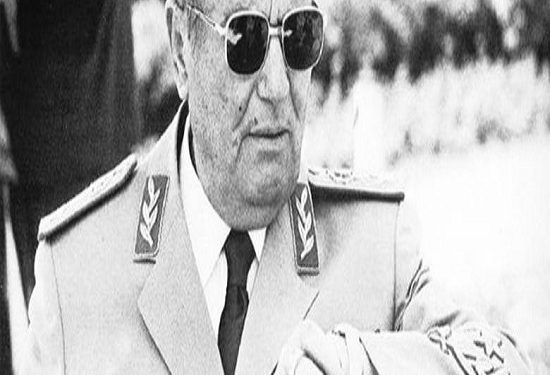
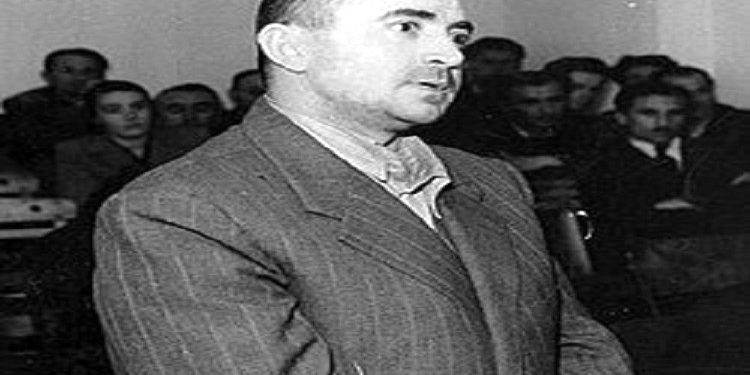
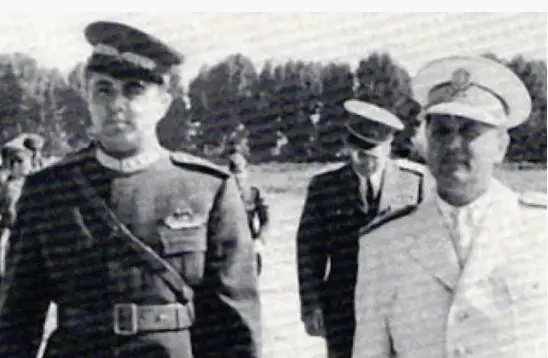
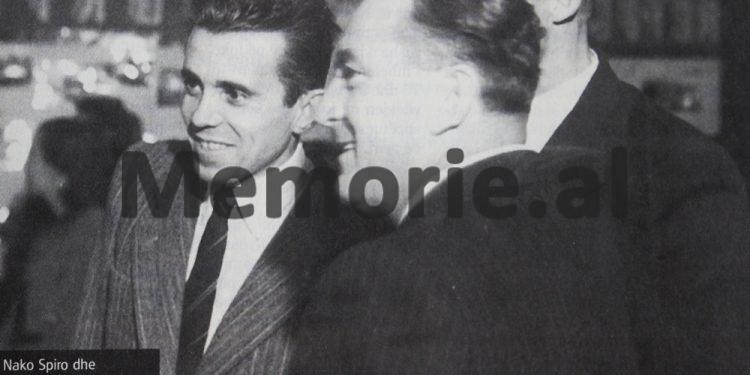
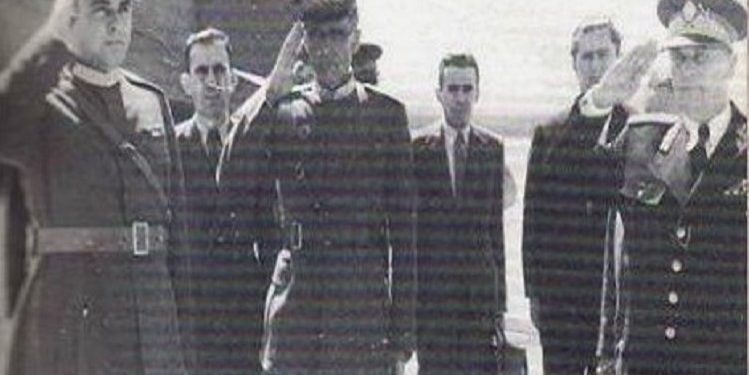
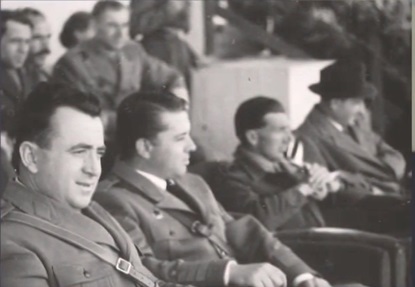




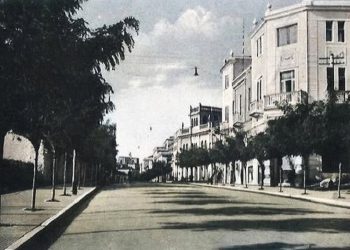
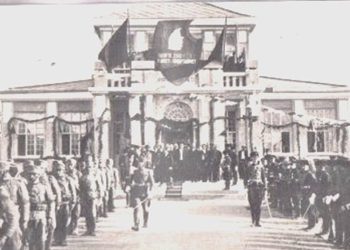
![“When the camp commander, in the presence of the group accompanying him, said to the convicted journalist: ‘Why did you exchange this beautiful profession for the Spaç wagon [mine cart/labor], he [the journalist]…”/ The unknown story of January 10, 1983](https://memorie.al/wp-content/uploads/2025/10/Spaç_Prison_Mirditë_Albania_–_Buildings_2018_08-75x75.jpg)